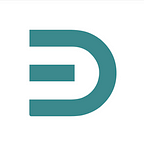DAO for Urban Mobility: Utopia or Immediate Future?
Emerging novel organisational concept of decentralised autonomous organisation (DAO) is challenging conventional management paradigms. Although DAO has many advocates among progressive early tech adopters and blockchain fans, critical mass is yet to be convinced of its benefits. As one of these advocates, I strongly believe that urban mobility issues plaguing modern cities could be easiliy resolved if DAO principles were applied.
DAO What?
Human need for structures and boundaries is as old as first primitive tribes that self-organised to reach common goals. During the process of the evolution up to today, that need is still validated in various concepts, as nation states, businesses, communities, households — you name it.
Historically our societies (especially in the Western Worlds) have gravitated towards democracy as the best available way to to govern nation states while the private sector remained quite autocratic and hierarchical. One could argue that hierarchies and autocratic structures in some cases can be more agile although we see from history that externalities they create usually outweigh potential benefits in the medium to long term.
Enabled by blockchain technology, DAOs bring in a new way for organisations (or even societies) to progress in a more balanced and sustainable manner, while maintaining decision-making efficiency. All members of the organisation vote on various decisions that impact its future, this way enabling a democratic way to self-organise.
There is still a lot of experimentation going on with regards to DAO model. While web innovations happen at the speed of light, there is much to be done in terms of tooling (voting mechanisms, valuing individual contributions, organising into smaller groups within DAOs, etc.) and potential applications in solving tangible issues outside of web 3.0 and crypto world. Urban mobility problems could be a noteworthy example.
What does Urban Mobility and DAOs Have in Common?
As urbanisation is taking place rapidly across the globe, cities which were established in the pre-car era or even middle ages (lots of them especially in Europe) face huge infrastructure challenges when it comes to people moving around closer to the city center. Speed restrictions, parking fees, emmision fees make it less and less affordable for people to own a vehicle while alternatives (car sharing, public transport, escooters or bicycles) for many are still not that convenient.
The problem described above is basically a public goods problem. This means that it is usually left to local authorities to deal with. As numerous examples show, local authorities are probably not the best at being capable to find ultimate solutions. This is where DAOs come into play as they allow people to self-organise and tackle those challenges together in an efficient manner.
How Would That Work?
Simply put — a core team of innovators could bring in a DAO based solution, scale it, and give it away for public to run.
That would be a way to take the pressure of public administrators and provide tools to the public itself to solve particular mobility challenges in different cities. A user could provide owned mobility assets to a shared pool allowing other users to utilize them for an agreed fee. The owner could withdraw the asset when needed. If they wish, local authorities could participate as well, for example, by providing assets to local pools or even subsidising the rides. Novel economics of such ecosystem would allow it to self-balance by offering higher returns when demand is high in order to incentivise asset contributions.
The cool part is that it’s not an official authority who would set the rules or own everything, but the contributors themselves.
If this model was implemented successfully, the vehicle utilization rates would dramatically increase, at the same time reducing congestion, pollution and the need for people to own their personal vehicles (a promise that traditional ride sharing businesses failed to deliver).
This is what we want to build with BoosterDAO. Potential to solve hard pressing mobility challenges across the globe is what drives us. We estimate that 2 years are needed to build the solution and deploy it.
Come join our team or invest in us if you share the same vision.
